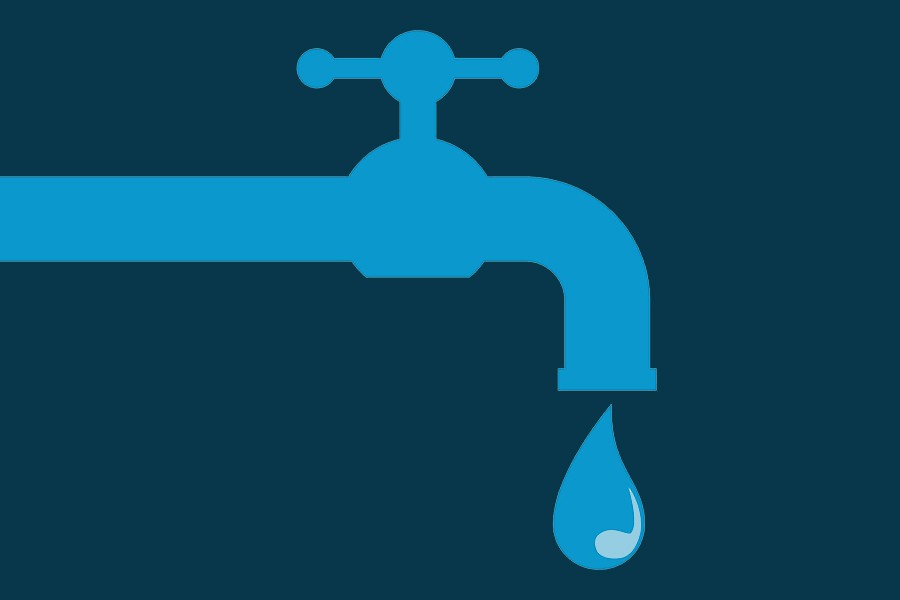
Published :
Updated :

A recent World Bank (WB) report on the state of water safety in the country has presented a terrible portrayal. In spite of a few such studies in the past by different organisations, this one stands out with its notes of alarm. Among its many findings, the WB highlights one which is dreadful owing to its serious hygienic implications for the people. It says 80 per cent of household tap-water in the country carries E. coli (Escherichia coli) bacteria. It is commonly blamed for causing many intestinal diseases, especially diarrhoea and food poisoning. The list also includes pneumonia and urinary tract infections.
Understandably, the capital Dhaka occupies a major place among the urban areas surveyed. The unbearable extent to which the city has been made to slid and struggle with the crisis has long been synonymous with its other miseries. In spite of periodic pledges from the policymakers, the Dhaka Water and Sewerage Authority (WASA) and other government agencies to alleviate the problem, the scourge continues to persist. The easy availability of safe drinking water in this fast-growing city of 18.237 million people has lately turned literally elusive. The situation has declined to such a level that people are made to go without supply water for weeks in a row. In the worst-affected areas they have to make do with dirty, stinking water coming through their supply lines. Few are least bothered that the poorly treated supply water has serious health implications. The campaigns urging the city residents to sufficiently boil the tap-water before drinking apparently fall on deaf ears. When it comes to supply of water by a government entity, the water's hygienic quality and use, Dhaka deserves to be placed even below the cities -- chronically hit by paucity of water or those with their supply network destroyed by wars.
The formation of a five-member committee by the High Court in early November to ensure safe water for the Dhaka residents could not have been timelier. The court constituted the committee to examine the quality of water supplied by Dhaka WASA. It has also asked the committee to submit a report in two months. To the hygiene-conscious citizens, those of Dhaka in particular, the High Court rule on safe water came as a relief and a source of enormous support. The committee includes representatives from the relevant ministry, researchers and experts from BUET, ICCDR,B and the University of Dhaka. In the rule, the High Court directed the authorities concerned to explain why their failure and inaction to supply safe water should not be declared illegal, and why they should not be directed to do so. Two Secretaries, Director General (DG), Directorate of Health Services, Chief Engineer of Public Health Department and the WASA chiefs in the other cities have been made respondents to the rule.
Water is life, thus goes the universal adage. In short, life cannot grow and survive without this invaluable substance. In case of Bangladesh, the availability of pure water is hinged with a life free of avoidable diseases, as well as the nation's survival as a strong nation. The WB's thrust on taking prompt action on improving the quality of water and sanitation to attain poverty reduction and accelerated growth thus deserves to be considered a national imperative. It's because unhygienic water and poor sanitation chiefly hit children, and these two scourges spawn nutritional disadvantages in early childhood. Due to poor coverage and the supply of contaminated water, the large cities have already become child-hostile.


 For all latest news, follow The Financial Express Google News channel.
For all latest news, follow The Financial Express Google News channel.